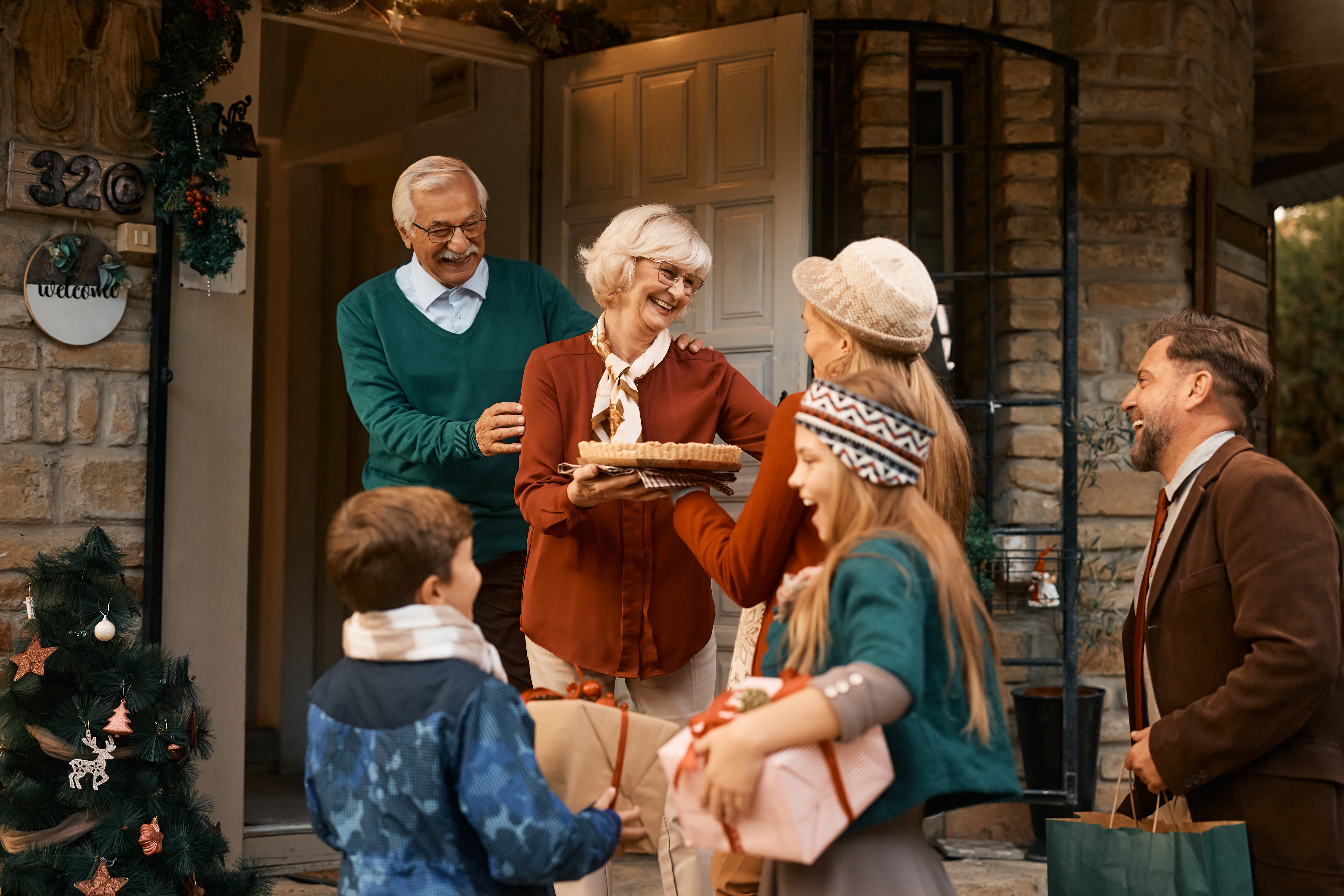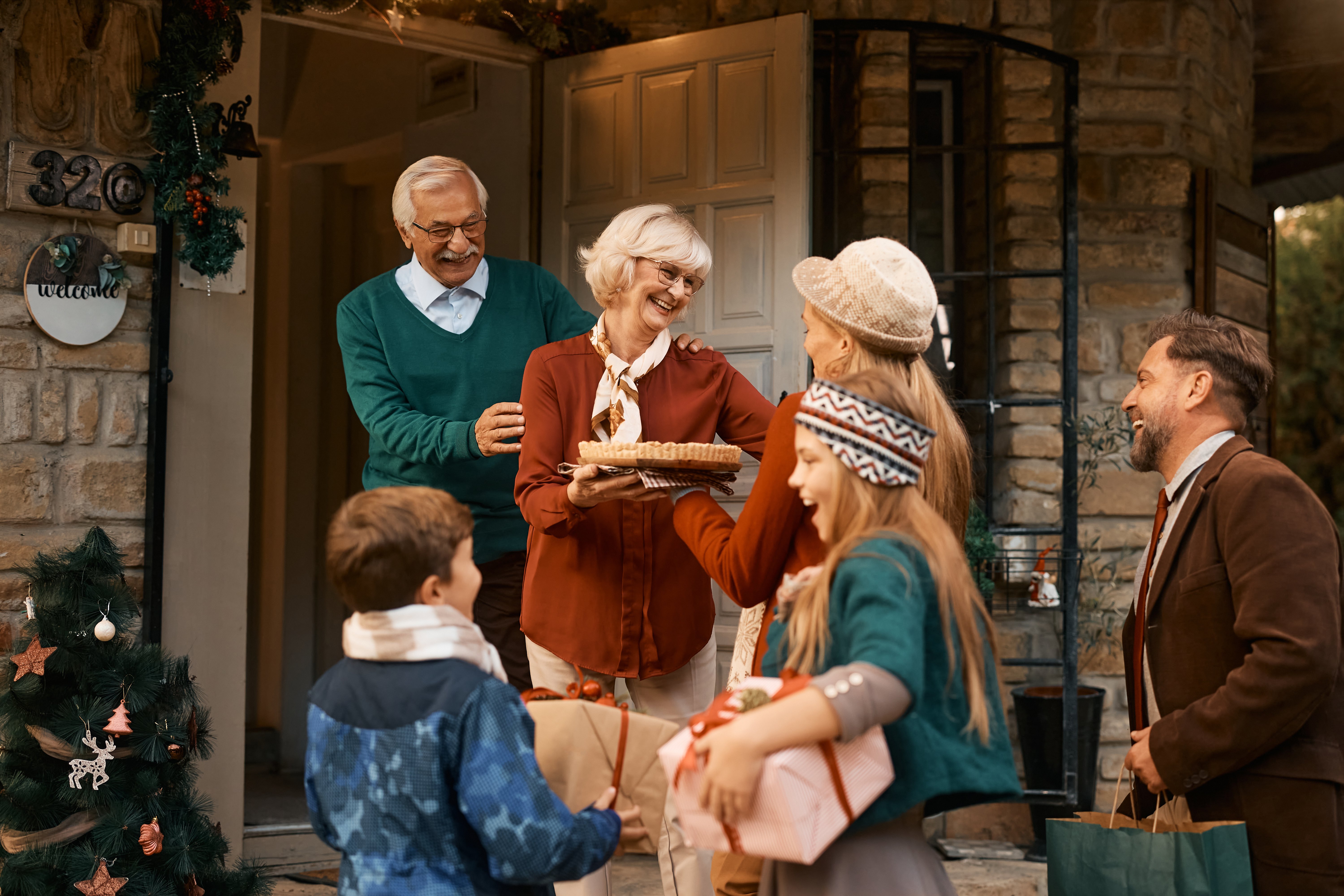6 Tips For Family Visits During The Holidays - Engaging or Dull? You Have a Choice!


Getting together with loved ones during the holiday season is one of the season's great joys. But, unfortunately, too often, our visits with our elders end up being a disappointment. Why?
Many times the reason is simply poor planning. For example, we haven't talked to other family members who can share updates on their physical, cognitive, or emotional health. Or, we assume that everything is status quo without checking in first and asking questions.
Like us, elders change. The difference is that older adults with a chronic illness or cognitive changes are more likely to experience more dramatic fluctuations in their abilities.
So, preparing for a family visit is one of the essential tasks to ensure an engaging visit! Here are a few tips that will help family members and loved ones avoid a disappointing visit:
-
Assess with others whether a large family gathering may be too overwhelming.
Many times, older adults are sensitive to noise and chaos. Would visits in small groups or even one-on-one create a more peaceful atmosphere to engage with my loved one? -
Gifts.
Is my loved one able to open a package, or would a gift bag be most appropriate? Even more important, would a gift of any kind be something they would appreciate? For those with dementia, gift-giving may be confusing and cause anxiety. Remember that your presence is often the greatest gift you can give! -
What are my loved one's capabilities?
Are they able to respond to and enjoy food? If so, what kinds of food can they eat now? It may be different than the last visit, so check with families and/or staff if they are in a senior living community or receiving professional care at home. -
Think about what would make the visit special
One of the most important things to remember is that even if someone is living with dementia and may not remember you, they will remember how you made them feel. With this in mind, talking to others will give you a perspective of what brings them smiles and joy. Remember that it changes, so you want to ask questions that will prepare you for where they are today. Not what they could do a year ago or even months or weeks ago. -
Once you have garnered more details, think about your visit.
How long do you have to spend with your loved one? What would bring them (and you) joy? In a previous blog, I talked about creating a basket of things that might evoke memories of people, places, and times from long ago, often those memories that are still retained. -
Reminiscence is the enjoyable recollection of past events or things.
Too often, we overlook that this can be a wonderful, joyous experience for older adults, especially those with dementia. Here is a free guide to understanding reminiscence and its role in engaging care partners. Free ebook- The Power Of Looking back
Planning and preparation for a visit is a gift you will give and receive. Don't overthink, yet at the same time, wear your detective hat and ask others so you aren't surprised.
Are there some items you can gather that would help spark conversation? If so, think about making a basket or bag that includes items from their past. Having these in your "back pocket" will help bridge conversations among generations and prompt new ideas of things to talk about together.
Consider purchasing an easy and fun reminiscence activity called Flashback. It's fun, engaging, and flexible - and sure to be an activity for the whole family. It allows many generations to recall things and people from the past, evoking joy and bridging relationships.
